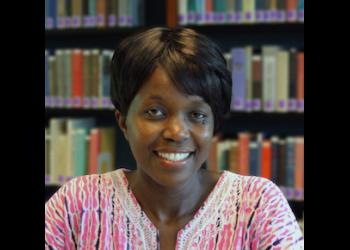Women and Men are like Two Wings of a Bird that Can Make Africa Fly into Prosperity
By Dr. Atieno Mboya
The 68th annual United Nations Commission on the Status of Women (CSW), the UN's largest annual gathering on gender equality and women's empowerment, is into its second week in New York on the theme, “Accelerating the achievement of gender equality and the empowerment of all women and girls by addressing poverty and strengthening institutions and financing with a gender perspective”. Delegates to the CSW are grappling with many questions, including: Why is the face of poverty the most disadvantaged women around the world? What can be done to prevent female poverty? What does it look like for institutions to prioritize gender equality and its many requirements, instead of women being relegated to the sidelines?
This is my first time attending the CSW and I have felt a deep sense of shared endeavor around the common cause of gender equality with my fellow delegates from all over the world. I have been struck by how today, the movement has enlisted millions of supporters from all races, genders, and classes, since the first CSW was held in 1947. Now in 2024, the world is at a crucial crossroads for gender equality as progress “towards ending poverty needs to be 26 times faster to achieve the Sustainable Development Goals by 2030” and traits traditionally associated with norms of patriarchy, such as behavior that is authoritarian or competitive, need to be replaced by flexibility, collaboration and gender-responsiveness.
As an African woman, I have been heartened to learn about the African Union’s commitment to speak with one voice on the imperative of advancing the status of women and girls on the continent, and strengthening institutions at various levels to achieve gender equality. The imagery that comes to mind is that of a bird with two strong wings that enable it to fly. Women are one wing and men the other. Both must be equally strong and balanced for African, and indeed all societies, to flourish.
When institutions adapt or are recast according to principles of equality and justice, and the members within them apply such principles, patterns of gender equality take shape, and programs to mitigate female poverty and advance the well-being of girls and women, who are the most impoverished of the poor, are prioritized. The space that the CSW creates for members of institutions from across the globe to meet and share knowledge and experiences in gender-responsive policies and programs is invaluable.
It was notable, for example, to see delegates from Kenya, Liberia and Sierra Leone convene a session on the importance of using evidence-based strategies to promote gender equality and development. African women researchers, who account for only 30 percent of the researchers on the continent, are bringing systems-based approaches to over 30 African countries to generate evidence that can inform policies, laws, and institutional strengthening for the advancement of women and girls. However, the gender gap in who is generating African research needs to be closed.
This brings me back to the image of the bird with two wings—it is vital to have balanced contributions from female and male knowledge holders, from the grassroots to the policy level, if we are to build gender-responsive, peaceful, and flourishing societies. Women must be welcomed into full partnership with men in knowledge sharing, consultative decision-making and in guiding the progress of the communities where they live.
As was stated by the African Union’s Special Envoy on Women, Peace, and Security, Madame Bineta Diop, education is a formidable force for empowerment. The Baha’i International Community (BIC) is convinced that ignorance is indisputably the principal reason for the decline and fall of peoples and the perpetuation of prejudice, including gender-based prejudices that keep women and girls from achieving their full potential. Parents also have a responsibility in ensuring that their children, both boys and girls, receive an education. In the Katuyola area of Zambia, for example, experiences from which feature in the BIC’s formal statement to CSW68, mothers that did not get a formal education are keen to ensure that their children go to school, thus breaking the cycle of illiteracy in their communities.
Through the pursuit of systematic, constant, harmonious lines of action, and the active support of men, the status and role of women and girls in Africa will continue to advance and the full equality of the sexes on the continent can be achieved.
Dr. Atieno Mboya served as CSW68 Delegate of the Baha’i International Community’s Addis Ababa Office.
